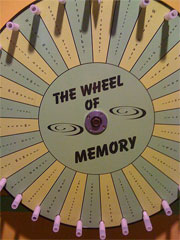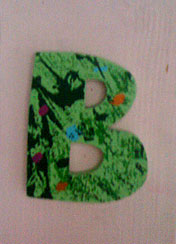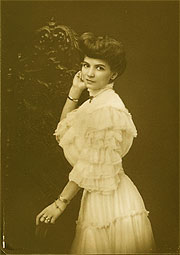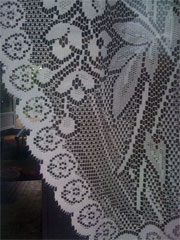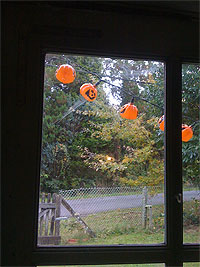Nobody’s Perfect
Try as I may to let our upstairs be the wild and creative universe of my children, eventually I reach a point when I can no longer endure the  disorder. This is usually prompted by a predictable chain of events: Buddy-roo dilly-dallies through breakfast, and the absolute last time of departure (ALTD) to get to school on time is fast approaching so I volunteer to go up to her room and select an outfit. “Pants or a dress?” I pretend this is a fun errand. Upstairs I’m appalled at the clutter that collects in just a few days since it was last in a reasonably tidy state. “It’s okay, they’re being creative,” I say to myself, closing the drawers left wide open and snatching Short-pants’ eyeglasses up off the floor, barely managing not to flatten them, instead stepping on some tiny piece of plastic, an umbrella shaped thing that came home in the favor-bag from a birthday party. It smarts, a lot. I lose it. Get up here now and pick up your rooms! All the reasoning and thoughtful discussions go out the window. So much for being the ideal parent. But sometimes it just feels good to holler.
disorder. This is usually prompted by a predictable chain of events: Buddy-roo dilly-dallies through breakfast, and the absolute last time of departure (ALTD) to get to school on time is fast approaching so I volunteer to go up to her room and select an outfit. “Pants or a dress?” I pretend this is a fun errand. Upstairs I’m appalled at the clutter that collects in just a few days since it was last in a reasonably tidy state. “It’s okay, they’re being creative,” I say to myself, closing the drawers left wide open and snatching Short-pants’ eyeglasses up off the floor, barely managing not to flatten them, instead stepping on some tiny piece of plastic, an umbrella shaped thing that came home in the favor-bag from a birthday party. It smarts, a lot. I lose it. Get up here now and pick up your rooms! All the reasoning and thoughtful discussions go out the window. So much for being the ideal parent. But sometimes it just feels good to holler.
The results of the first trimester bilans come home. Buddy-roo’s scores are all over the board. Even Short-pants, who actually enjoys doing her homework, has inconsistent grades. I smile at anything equal to or above a score of 8/10. I try not to overreact to that glaring 5/10. I ask her how she feels about it. “I’m not that strong at geography,” she says.
I’m torn. I want to inspire her to try harder, do better. Another part of me remembers a consultant I worked with in my earliest career, Don Clifton was his name, talking about how good leaders were rarely straight-A students; they only excelled in the subjects in which they had strengths or that they felt were important. In other words, they prioritized.
We talk about how to do better in geography and I try not to harp on it. A final summary sentence about how hard she’s worked and how that really paid off with her grades. “Except that one,” I say. (But not out loud.)
I don’t want to pressure my kids to get everything right all the time. But is this a question of individual strengths and preferences or is it just plain lack of trying? It might be that she just got lazy – sometimes that’s all it is – and being reminded might help her do better the next time.
On the other hand, maybe she’s just not that strong at geography.
Buddy-roo can recite by heart entire passages from the movie Hello Dolly, or sing the most obscure song from On the Town without any practice. But ask her to conjugate the verb être, even though we’ve been over it a million times, she still can’t remember the six forms of the present tense without making a mistake. I don’t want to beat her up. But I know she can do it.
What’s the right balance of supporting and challenging your children? How do I inspire them to try to perform well – and take pride in their work – without thrusting upon them the stress of being a perfectionist?
I’m sure I make things more complicated than they need to be. My parents had no apparent angst about how to respond to my report card. Good 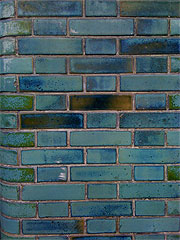 grades were expected. If you got a B, it was met with a raised eyebrow. Getting a C was grounds for a discussion; you were called in to the living room and seated at the square card table. My parents were never cruel or harsh, and yet we lived in mild fear of disappointing them, and this was what you realized you’d done if you were called in to sit at that table. Would a psychologist today find fault in the way they held us to their standards? Maybe. But they weren’t trying to be perfect parents. They were trying to be good parents.
grades were expected. If you got a B, it was met with a raised eyebrow. Getting a C was grounds for a discussion; you were called in to the living room and seated at the square card table. My parents were never cruel or harsh, and yet we lived in mild fear of disappointing them, and this was what you realized you’d done if you were called in to sit at that table. Would a psychologist today find fault in the way they held us to their standards? Maybe. But they weren’t trying to be perfect parents. They were trying to be good parents.
I sit in judgment of messy bedrooms or inconsistent grades, but what about me? Do I get it all right, all the time? Consider the piles of files and papers stashed in shelves in our office, I mean to sort through them but somehow never get to it. My taxes are never turned in without at least filing for one extension. I ran a workshop yesterday and it went well, but it was far from flawless. I’ve been writing a post about procrastination – for another blog I write with my colleagues – for three months now. (This is not even ironic anymore, it’s pathetic.)
I signed up for the NaNoWriMo challenge to write 50,000 words in the month of November – ambitious if you’re composing a novel from scratch, but the last unfinished chapters of my novel are already outlined, which ought to make the job easier. I started with great fervor, overshooting the suggested daily goal by a few hundred words each day in anticipation of the mid-month business travel that would interrupt the daily exercise. That trip set me back several thousand words, and when I returned home I was bombarded with things not attended to in my absence. I knew I shouldn’t let it stop me, but once I was 10,000 words behind it was too overwhelming. So that novel I’ve been writing for seven years, it’s still not done.
Oh, guess what? I’m human.
As a mother, I’m compelled to fend off the idealized image of motherhood (this is the point of my unfinished book by the way), which has made us a  generation of parents that over-protects and over-provides. Our children, in turn, are under pressure to be the perfect children, to have dabbled in all the right extracurricular activities, to get the best scores, to be popular and social and yet independent and self-possessed. To go to the right school, the one most likely to help you get into the next right school. This all horrifies me, having grown up in a generation that did not study for SATs – they were aptitude tests, after all – and I’m fatigued just thinking about what’s ahead for the girls as they grow into young women hoping to find their place in the world.
generation of parents that over-protects and over-provides. Our children, in turn, are under pressure to be the perfect children, to have dabbled in all the right extracurricular activities, to get the best scores, to be popular and social and yet independent and self-possessed. To go to the right school, the one most likely to help you get into the next right school. This all horrifies me, having grown up in a generation that did not study for SATs – they were aptitude tests, after all – and I’m fatigued just thinking about what’s ahead for the girls as they grow into young women hoping to find their place in the world.
(And yet I hope is that they will do well – in school and in life – so that they’ll have more choices when it comes to finding their place in this world.)
There is the adage, one I’ve subscribed to in theory but perhaps not in practice, that if you’re going to do something, do it well or not at all. The inclination to cross every t and dot every i and put your best work forward isn’t necessarily a bad thing – until it becomes compulsive and restrictive. Sometimes it’s just fine to be good enough, to let them be the messy, dreamy kids that they are, and to be the mother who does her best while juggling a lot, which sometimes means raising my voice or losing my temper. Besides, sometimes it just feels good to holler.

